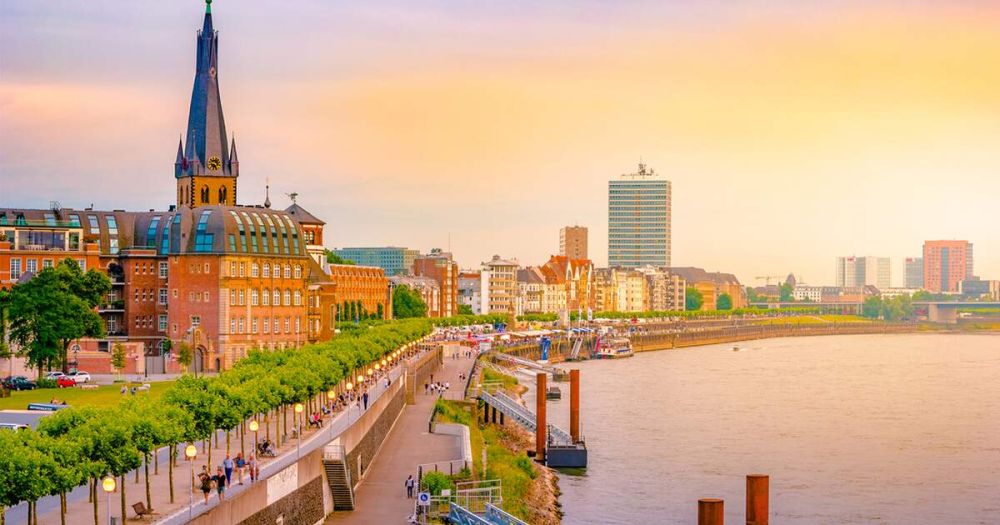

Düsseldorf, the capital city of the German state of North Rhine-Westphalia, is a hub of culture, fashion, and business. Although Düsseldorf might not have been a traditional tourist hotspot like Berlin or Munich, it has steadily carved a niche for itself as a vibrant destination for both leisure and business tourism.
Originally a small fishing village, Düsseldorf's expansion began in the 14th century when it was granted town privileges. However, it wasn't until the 19th century that it started to gain prominence as a hub for the arts. The establishment of the Kunstakademie Düsseldorf (Düsseldorf Art Academy) in 1819, which garnered a reputation as one of the best art schools in Europe, attracted creatives from around the globe and enhanced the city's cultural tourism appeal.
Post-World War II reconstruction and economic resurgence saw Düsseldorf emerge as a prosperous city. The Messe Düsseldorf, a trade fair ground established in 1947, became one of the world's foremost trade exhibition centers, drawing business people and professionals annually to events such as DRUPA and K-Fair.
The city's vibrant arts scene, fashion industry, and architectural landmarks, such as the Rhine Tower and the Gehry Buildings in the Media Harbour, have also contributed significantly to increasing tourist footfall over the years. Düsseldorf's Altstadt, known as "the longest bar in the world," offered a unique cultural experience that has remained a draw for tourism.
In recent years, Düsseldorf has embraced a diverse range of tourism trends. With the rise of sustainable travel, Düsseldorf has been actively working towards becoming a green city. It offers abundant green spaces such as the Hofgarten and the Nordpark, eco-friendly public transportation, and support for sustainable events and practices in the hospitality industry.
The city has also seen a rise in gastro tourism, with tourists flocking to try both traditional and modern culinary delights—ranging from the Alt beer in the old town to a multitude of international cuisines influenced by Düsseldorf's diverse expat population.
Cultural tourism continues to grow with the city's many museums and galleries, such as the Kunstsammlung Nordrhein-Westfalen and the K20 Grabbeplatz, hosting exhibitions that attract international attention.
Trends in digitalization have influenced Düsseldorf's approach to tourism, with various digital guides and apps being developed for tourists to explore the city more conveniently. Moreover, the city's numerous events, such as the Christmas markets, Japan Day, and Carnival, continue to draw visitors seeking unique cultural experiences.
As it stands, Düsseldorf's place in the tourism landscape is that of a multifaceted city where tradition meets modernity, and where businesses, as well as leisure tourists, can find an array of experiences to suit their tastes.